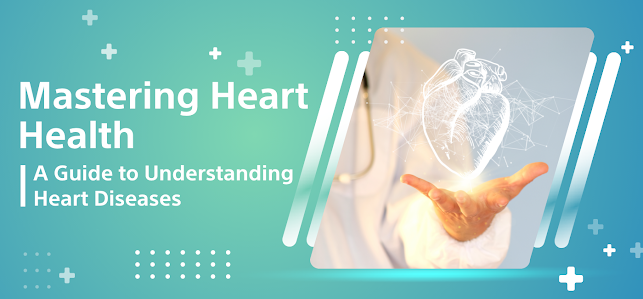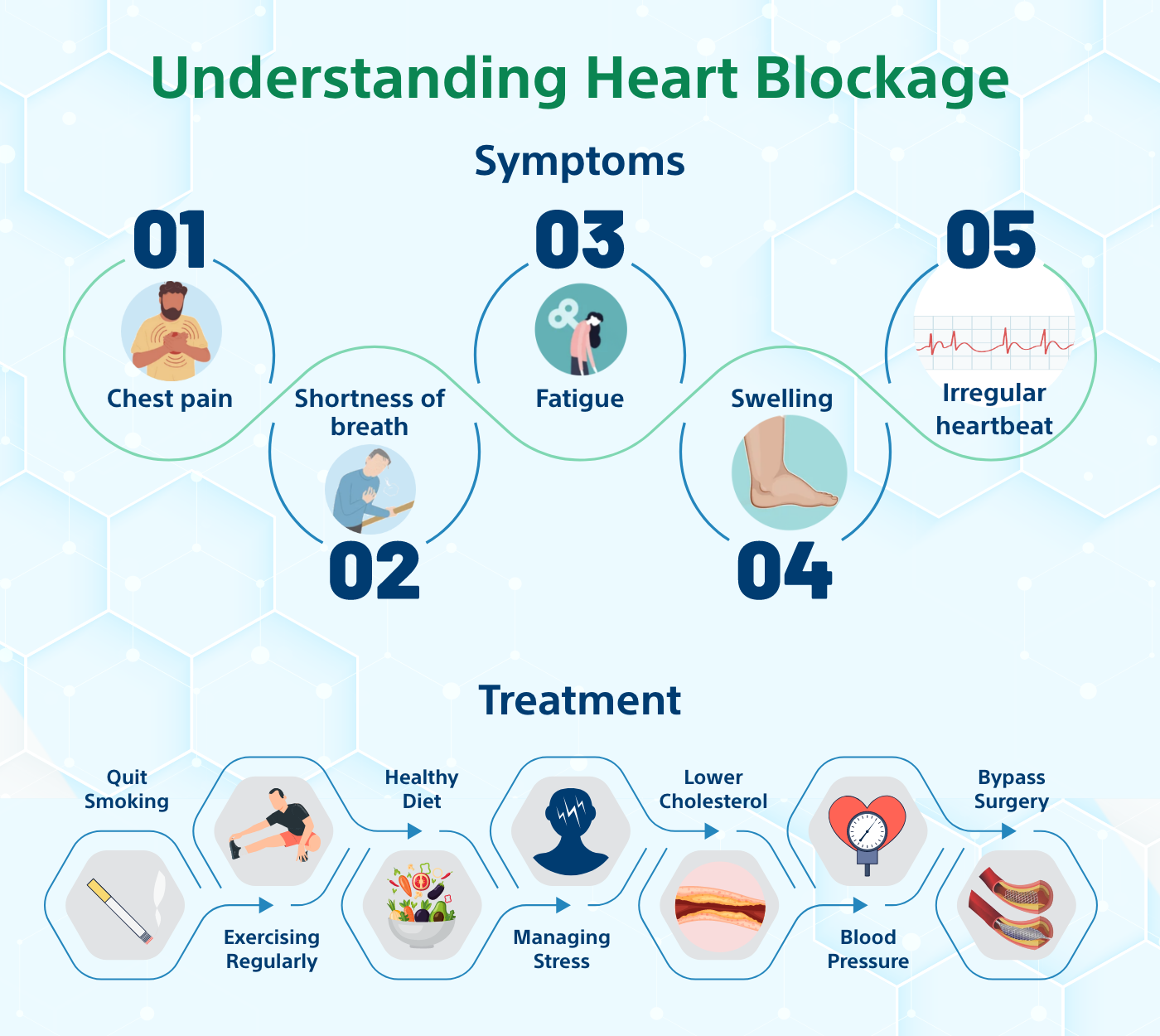Mastering Heart Health: A Guide to Understanding Heart Diseases
Heart diseases have emerged as a silent
epidemic in India, affecting millions of lives every year. Mastering heart
health is not just about knowing the basics of heart diseases; it's about
understanding the nuances of prevention, early detection, and management. In
this comprehensive guide, let's delve deep into knowing about heart diseases,
exploring their prevalence in India, and providing insights and strategies from
leading cardiologists to help you master your heart health and combat
cardiovascular diseases.
The Burden of Heart Disease in India
1. The Alarming Statistics
India is currently facing a heart disease crisis. According to WHO,
cardiovascular diseases account for 27% of all deaths in the country. It
translates to approximately 2.8 million Indians losing their lives to heart
diseases annually. Among these, coronary artery disease (CAD), heart failure,
and hypertension are the most prevalent.
2. The Rising Trend
What's even more concerning is the rising trend of heart disease among
the Indian population. The prevalence of heart disease has increased by 50% in
the last 30 years. A study published in the Journal of the American College of
Cardiology predicts that by 2030, India will witness a staggering 200% increase
in the number of heart disease cases.
Understanding Heart Diseases
1. Types of Heart Diseases
To master heart health, it's crucial to understand the various types of heart diseases that can affect you. These include:
· Coronary Artery Disease (CAD): The most common form of heart disease, categorized by the narrowing of blood vessels supplying the heart.
· Heart Failure: A condition where the heart's ability to pump blood efficiently is compromised.
· Hypertension: It is a significant risk factor for heart disease.
· Arrhythmias: Irregular heart rhythms that lead to palpitations, fainting, or even sudden cardiac arrest.
2. Risk Factors
Leading cardiologists emphasize the importance of recognizing and managing risk factors for heart diseases. These include:
· High Blood Pressure: Over 30% of Indian adults suffer from hypertension.
· Diabetes: Diabetics have a higher risk of developing heart disease.
· Obesity: A growing concern in India, as obesity is linked to multiple heart disease risk factors.
· Smoking and Tobacco Use: Smoking is a significant contributor to CAD.
· Unhealthy Diet: Consuming excessive saturated fats, salt, and processed food increases the heart disease risk.
· Lack of Physical Activity: A sedentary routine is associated with obesity and heart diseases.
· Stress: The chronic stress leads to high blood pressure and heart problems.
Mastering Heart Health: Strategies for Prevention
1. Lifestyle Modifications
Cardiologists often advocate for lifestyle changes as the cornerstone of heart disease prevention:
· Healthy Diet: Incorporate fruits, vegetables, whole grains, and lean proteins, and reduce salt and sugar intake.
· Regular Exercise: Atleast 150 minutes of moderate exercise is required per week.
· Quit Smoking: Seek professional help if needed to kick the habit.
· Stress Management: Practice relaxation techniques like yoga and meditation.
· Moderate Alcohol Consumption: Limit alcohol intake to reduce heart disease risk.
2. Regular Health Check-ups
Preventive healthcare plays a pivotal role in mastering heart health. Regular health check-ups allow for early detection of risk factors and heart diseases:
· Blood Pressure Monitoring: Keep a check on your blood pressure, especially if you have hypertension.
· Blood Sugar Tests: Regular screening for diabetes is essential.
· Cholesterol Tests: Monitor your cholesterol levels, especially if you have a family history of heart disease.
3. Medication Compliance
If you are diagnosed with conditions like hypertension or diabetes, it's
crucial to follow your doctor's prescribed medications diligently.
Non-compliance can lead to complications and an increased risk of heart
disease.
Early Detection and Management
1. Recognizing Symptoms
While we won't delve into the symptoms
of a heart attack, it's vital to recognize symptoms of other heart
conditions, such as heart failure or arrhythmias. It includes shortness of
breath, chest pain, fatigue, and palpitations. If you experience any of these
symptoms, seek medical attention promptly.
2. Diagnostic Tests
Cardiologists employ various diagnostic tests to assess heart health:
· Electrocardiogram (ECG): It is meant to measure the electrical activity of the heart.
· Echocardiogram: Use sound waves to create images of the heart structure and function.
· Stress Tests: Evaluate the heart's response to exercise.
· Cardiac Catheterization: Invasive procedure to diagnose and treat CAD.
3. Treatment Options
Treatment for heart disease depends on specific conditions but may
include lifestyle modifications, medications, medical procedures, or surgery.
It's crucial to follow your cardiologist's recommendations closely to manage
your heart health effectively.
Expert Insights: Tips from Leading Cardiologists
To provide you with the most up-to-date and relevant information on
mastering heart health, we sought insights from some of India's renowned
cardiologists. Here are their tips and recommendations:
1. Dr. Neha Sharma, MD, FACC
"Don't underestimate the power of regular exercise. The brisk
walking for 30 minutes a day can significantly bring down your risk of heart
diseases."
2. Dr. Rajesh Kapoor, MD, DM
"Make fiber-rich foods like oats, brown rice, and lentils a part of
your daily diet. Fiber helps lower cholesterol levels and promotes heart
health."
3. Dr. Anil Kumar, MD, FRCP
"Stress management is not a luxury; it's a necessity. Find
stress-relief techniques that work for you, whether it's meditation, deep
breathing, or spending time in nature."
4. Dr. Priya Malik, MD, FACC
"Stay informed about your heart health. Ask your doctor questions,
know your numbers (blood pressure, cholesterol, blood sugar), and take an
active role in managing your health."
Conclusion
Mastering heart health is an ongoing journey that requires awareness,
dedication, and the guidance of medical professionals. With the alarming rise
in heart diseases in India, it's essential to take proactive steps to prevent,
detect, and manage these conditions. By incorporating lifestyle modifications,
regular health check-ups, and expert advice, you can significantly reduce your risk of
heart disease and lead a heart-healthy life. Remember, your heart is in your
hands—take good care of it.
In the battle against heart disease, knowledge is your most potent
weapon. Stay informed, stay healthy, and master your heart health for a
brighter, heart disease-free future.



Comments
Post a Comment